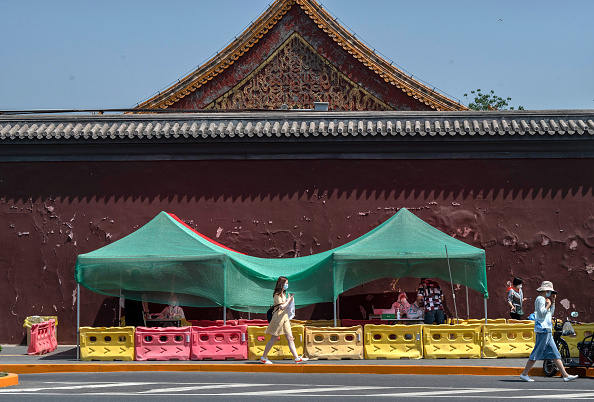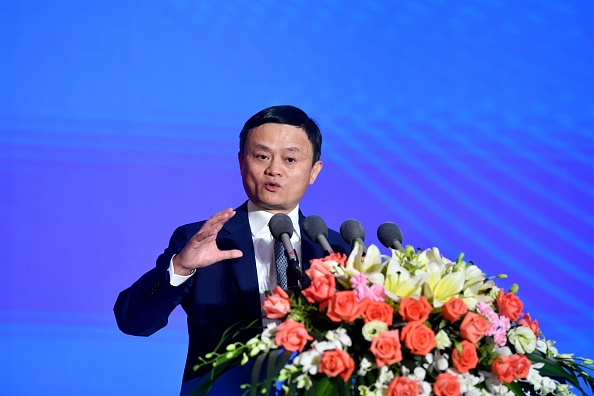
 Vying for Mutual Benefit
Vying for Mutual BenefitThe world is watching to see if there will be a renewed cycle of U.S.-China tensions, as Russia's war in Ukraine and growing concern over the global economy create strong headwinds for a productive bilateral relationship.
However, the long-awaited reveal of President Joe Biden's updated U.S.-China policy has been further delayed after Washington's top diplomat Antony Blinken tested positive for Covid-19 this week.
Secretary Blinken's major policy address, scheduled for yesterday at George Washington University, was expected to call for strengthened alliances and partnerships. Blinken was allegedly going to set forth a doctrine intended to counter U.S. perceptions of China's growing diplomatic, economic and military influence, which is seen by many as undermining Biden's plan for a "rules-based international order."
Noting that he would not make comments on a speech that has not yet been delivered, Chinese Foreign Ministry spokesperson Zhao Lijian wished Blinken a speedy recovery and stressed that the development of a healthy and stable China-U.S. relationship is in the interest of the international community.
In the meantime, U.S. Trade Representative Katherine Tai announced a review of the Trump era tariffs on Chinese imports due to alleged intellectual property and technology transfer practices. The USTR has been notifying domestic industries that benefit from the duties of the tariff's possible end, and the opportunity to request that they stay in place.
Read more in "China-U.S. Ties in a Turbulent World," by Li Yan, the Deputy Director of Institute of American Studies at CICIR.
 Renewed Focus
Renewed FocusChina's economy is experiencing a spell of slower growth heightened by the ongoing pursuit of a zero-tolerance approach to Covid-19 in major cities. While some economists have toyed with the term "recession" to describe China's experience, many have noted that a true recession, commonly defined as two straight quarters of contraction, remains unlikely for China. Further, Beijing has emphasized that they have many ways to ensure the country has stronger growth than western nations this year, including its ability to unleash heavy government spending. This follows data released last week that the U.S. economy shrank at a 1.4% annual rate in the first quarter.
Earlier this week, China's Premier Li Keqiang noted that the resurgence of China's large-scale lockdowns has also "hit employment quite hard," leading to policymakers pledging to step up support measures, particularly for small businesses and this year's record 10 million college graduates.
"Now we need to place greater importance on stabilizing employment," Li said while chairing a State Council meeting. "We must make dedicated efforts to support market entities and keep employment stable."
During the meeting, the State Council pledged to provide more relief to small businesses, which have been hit hard by the lockdowns. They also vowed to implement more measures to resume production in key enterprises on the condition of solid Covid-19 control.
Meanwhile, impacts of China's economic slowdown, along with other global issues such as the war in Ukraine, decades-high inflation in the U.S., and more, are impacting international corporations that have placed their focus on China as an important manufacturing base and consumer market. Several warned last week that their entire businesses are being impacted, such as Starbucks, who announced that their same-store sales fell by 23% in China from the same quarter last year. Though Apple plants have restarted production in Shanghai, they also reported that the recent lockdowns and ongoing chip shortage would hit sales in the current quarter by $4 billion to $8 billion, "substantially more than last quarter," according to Apple management.
Read more in "Shanghai Lockdowns Disrupt Global Supply Chains," by Cameron Johnson, a Partner at Tidalwave Solutions, and Jarrod Ward, a Chief Business Development Officer, Yusen Logistics East Asia Headquarters.
 "Mister Ma"
"Mister Ma"After a Chinese television station reported that police had taken "compulsory measures" against an individual with the last name Ma, investors panicked and assumed that the man was Alibaba's billionaire founder Jack Ma. They subsequently dumped their shares, causing the stock to crash by as much as 9.4% and erasing about $26 billion in value.
Chinese state media later clarified that the arrested Mister Ma was born in 1985, clearing the name of Alibaba founder Jack Ma, who was born in 1964 and has kept a low profile since falling afoul of Beijing regulators in 2020.
Economic analysts noted that the tanking of shares demonstrated that investors are nervous about Alibaba's future—even as Beijing has signaled that it intends to ease its crackdown on the nation's tech sector in response to concerns over slowing growth. Just a few years ago, Alibaba was a darling of Beijing officials and international investors. However, stock prices have since collapsed due to regulatory restrictions, U.S. sanctions, and Covid complications.
Washington has meanwhile moved to impose tough sanctions on Hikvision, a Chinese surveillance camera maker accused of facilitating human rights abuses. The surveillance firm has been facing criticism for years, mainly over accusations that it is helping Chinese authorities to track minority groups using its facial recognition technology. If enacted, the sanctions would represent the harshest measures imposed so far against a major Chinese company.
Prepared by China-US Focus editorial teams in Hong Kong and New York, this weekly newsletter offers you snap shots of latest trends and developments emerging from China every week, while adding a dose of historical perspective.
- 2022-04-29 Seeking Relief
- 2022-04-22 Tipping Point
- 2022-04-15 “Persistence is Victory”
- 2022-04-08 No Divorce
- 2022-04-01 Auditing Accountability
- 2022-03-25 Playing Policy
- 2022-03-18 One Hand Cannot Clap
- 2022-03-11 Political Forecast
- 2022-03-04 Competitive Advantage
- 2022-02-25 A Sovereign Tightrope
- 2022-02-18 Strategic Disengagement
- 2022-02-11 In the Thick of It
- 2022-02-04 Year of the Tiger
- 2022-01-28 Zero-Sum
- 2022-01-21 An Uncertain Future
- 2022-01-14 Digital Advances
- 2022-01-07 The Dawn of a New Political Year
- 2021-12-17 Clamp Down
- 2021-12-10 Debating Democracy
